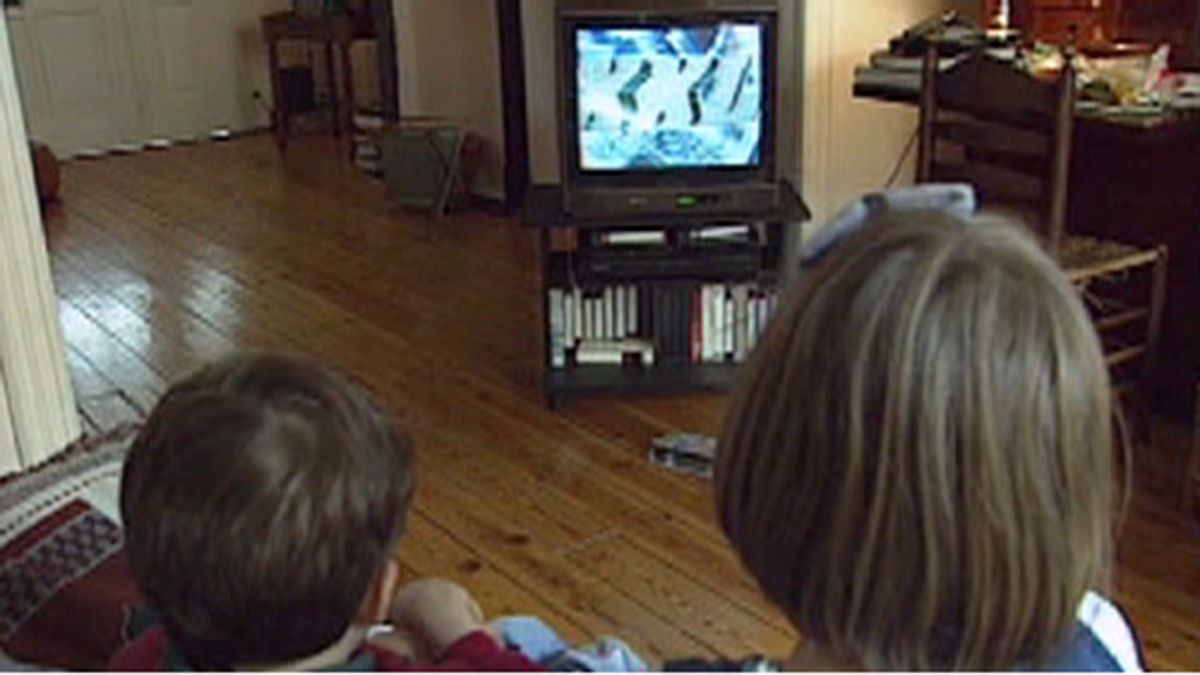According to an American study, the amount of time children and teenagers spend watching TV may have more to do with their parents’ TV habits than with family viewing rules or the location of the television in the house.
There is a lot of advice about how to reduce the amount of TV that children watch. But does it really work? According to researchers at the University of Pennsylvania’s Annaberg Public Policy Center, the answer is NO. “The best predictor of children’s TV time is their parents’ TV time” says policy research scientist Amy Bleakley. “If Mom and Dad automatically turn on the TV when they have free time, it is likely that their kids will learn to do the same.”
Researchers interviewed 1550 parents with children aged 17 or younger. Parents were asked about the amount of time they spend watching TV or DVDs, the number of TVs in the home and where they are located. They were also asked how much time their children spend in front of the TV.
Parents watched an average of four hours of TV per day, children watched about three hours. Children whose parents watched more than the average also watched more. Bleakley added: “In general, we found that across children of all ages, the amount of time a parent spends watching television is strongly associated with their child’s television time.”
Parents’ TV time had a stronger correlation to kids TV time than any house rules on time limits. Adolescents watched about one more hour of TV than their parents thought they did.
Child development experts say that routinely placing young children in front of the set when you’re feeling overwhelmed isn’t going to help their mental or physical health. It has been suggested that very young children who sit in front of the TV are more likely to be anti-social by the age of 7. Sitting still too much is also linked to obesity, inactivity and poor sleep.
Speaking about the study Bleakley said, “We wanted to raise awareness of how parents’ media habits may be affecting that of their kids.”
